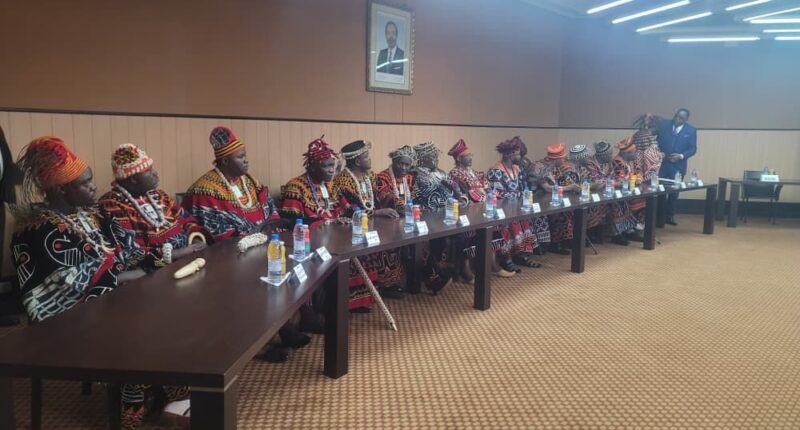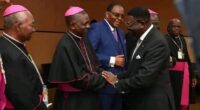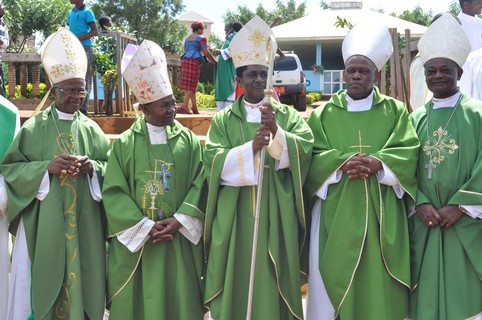Southern Cameroonians Express Disappointment as Northwest Fons Meet Ngoh Ngoh
By Andre Momo, BaretaNews
August 13, 2025
A delegation of Northwest Fons recently visited the Presidency in Etoudi, meeting with Ferdinand Ngoh Ngoh, the Secretary General at the Presidency, in what sources describe as part of the groundwork for President Paul Biya’s campaign for an eighth term in office. At 92, Biya remains the official candidate of the ruling Cameroon People’s Democratic Movement (CPDM), but his absence from such critical meetings has sparked widespread frustration and disillusionment, particularly among Southern Cameroonians.
For many in the Anglophone regions, the Fons are revered as custodians of tradition and symbols of cultural pride. However, their decision to engage with Ngoh Ngoh has led to a profound sense of betrayal. Southern Cameroonians, already grappling with feelings of marginalization, view this move as a painful reminder of the diminishing respect for these traditional leaders. Once held in high esteem, the Fons are increasingly seen as aligning with a regime that many in the region feel has neglected their aspirations and grievances.
The fact that these Fons, like many others who make the pilgrimage to Etoudi, could not secure an audience with President Biya himself has become a subject of both mockery and indignation. The President’s absence from these strategic consultations fuels the growing narrative of an “invisible presidency,” where power is exercised through intermediaries like Ngoh Ngoh, leaving even respected traditional leaders to deal with proxies rather than the head of state. “If our Fons, who we hold in such high regard, cannot even meet Biya face-to-face, what hope is there for the rest of us?” asked a disillusioned community leader from Bamenda, echoing the sentiments of many.
This development has only deepened the sense of alienation among Southern Cameroonians, who feel that their traditional leaders are compromising their integrity by participating in what they see as a hollow political charade. The Fons’ visit to Etoudi, far from reinforcing their authority, has instead diminished their standing in the eyes of their people, who expected them to uphold the dignity and autonomy of the Northwest region.
As Biya’s campaign machinery ramps up, the absence of direct engagement with the President underscores the disconnect between Etoudi and the people it claims to represent. For Southern Cameroonians, the Fons’ meeting with Ngoh Ngoh is not just a political maneuver—it is a stark symbol of a presidency that remains out of reach, both physically and symbolically, leaving traditional institutions and their followers grappling with a profound loss of trust.





